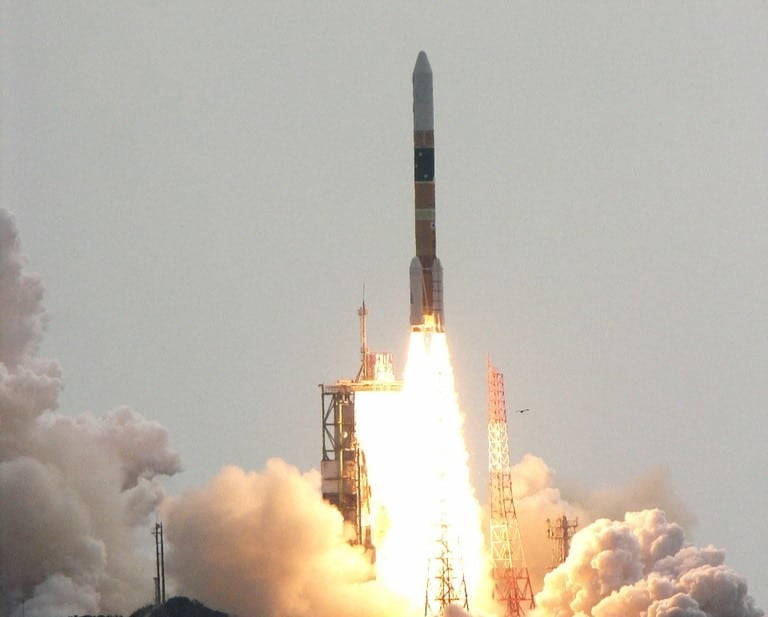

The engine of Japan’s flagship small rocket, the Epsilon S, blew up and burst into flames during a combustion test on Tuesday.
Originally set to launch in March 2025, the second explosion of the small rocket raises serious concerns about whether the machine will be ready by the expected date. The engine blew up only 49 seconds into what was supposed to be a two-minute test. The test failure left the site in flames, and several parts of the rocket scattered but did not kill or harm anyone.
The test took place at Japan’s Tanegashima Space Center in southwestern Japan in a restricted area. According to Chief Cabinet Secretary Yoshimasa Hayashi, Japan Aerospace Exploration Agency (JAXA) is investigating the Epsilon S explosion.
“Development of flagship rockets such as Epsilon S is extremely important from the perspective of ensuring autonomy of Japan’s space development,” said Hayashi. “JAXA will thoroughly investigate and take steps.”
Takayuki Imoto, an Epsilon project manager, told reporters the details about the incident, including how long it took for the explosion to happen. Imoto also issued an apology on the team’s behalf, saying that the team is doing what it can to meet its deadline after the failure.
“We are very sorry to have failed to live up to expectations,” said Imoto. He added that the exact cause of the explosion is being looked at and that staff are picking up the debris to speed up the process to meet their March deadline. Imoto also mentioned that repairs to the restricted area where the test was conducted would take several months.
In 2023, Japan’s flagship small rocket exploded for the first time. The cause of the first explosion was said to be an ignition issue. JAXA has said that the Epsilon S team has taken the necessary steps to fix the cause of the previous explosion.
The Epsilon S small rocket is set to become a vital player in Japan’s ambitious space plans. The rocket is key to Japan’s entry into the satellite launching business, which has proved to be a lucrative part of other space programs and companies such as SpaceX. If the Epsilon S is a success, it will be an improvement on their current model by offering increased cargo space at a smaller price tag.
While Japan’s flagship small rocket has had trouble getting off the ground, JAXA’s larger H3 model has been a success. The H3 rocket failed on its first launch in February 2023 but has since had three successful flights.
